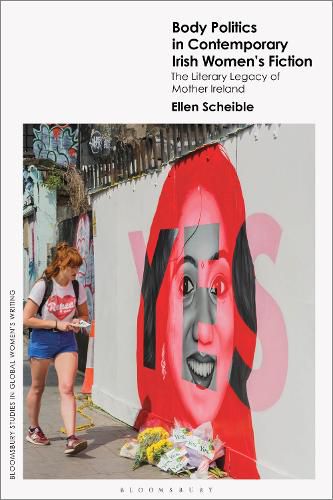Readings Newsletter
Become a Readings Member to make your shopping experience even easier.
Sign in or sign up for free!
You’re not far away from qualifying for FREE standard shipping within Australia
You’ve qualified for FREE standard shipping within Australia
The cart is loading…






Exploring twentieth- and twenty-first century texts that wrestle with the Irish domestic interior as a sexualized and commodified space, this book provides readings of the power and authority of the feminized body in Ireland.
Scheible dissects the ways that 'the woman-as-symbol' remains consistent in Irish literary representations of national experience in Irish fiction and shows how this problematizes the role of women in Ireland by underscoring the oppression of sexuality and gender that characterized Irish culture during the twentieth century.
Examining works by Elizabeth Bowen, Pamela Hinkson, Emma Donoghue, Tana French, Sally Rooney and James Joyce, this book demonstrates that the definition of Irish nationhood in our contemporary experience of capitalism and biopolitics is dependent on the intertwining and paradoxical tropes of a traditional, yet equally sexual, feminine identity which has been quelled by violence and reproduction.
$9.00 standard shipping within Australia
FREE standard shipping within Australia for orders over $100.00
Express & International shipping calculated at checkout
Exploring twentieth- and twenty-first century texts that wrestle with the Irish domestic interior as a sexualized and commodified space, this book provides readings of the power and authority of the feminized body in Ireland.
Scheible dissects the ways that 'the woman-as-symbol' remains consistent in Irish literary representations of national experience in Irish fiction and shows how this problematizes the role of women in Ireland by underscoring the oppression of sexuality and gender that characterized Irish culture during the twentieth century.
Examining works by Elizabeth Bowen, Pamela Hinkson, Emma Donoghue, Tana French, Sally Rooney and James Joyce, this book demonstrates that the definition of Irish nationhood in our contemporary experience of capitalism and biopolitics is dependent on the intertwining and paradoxical tropes of a traditional, yet equally sexual, feminine identity which has been quelled by violence and reproduction.